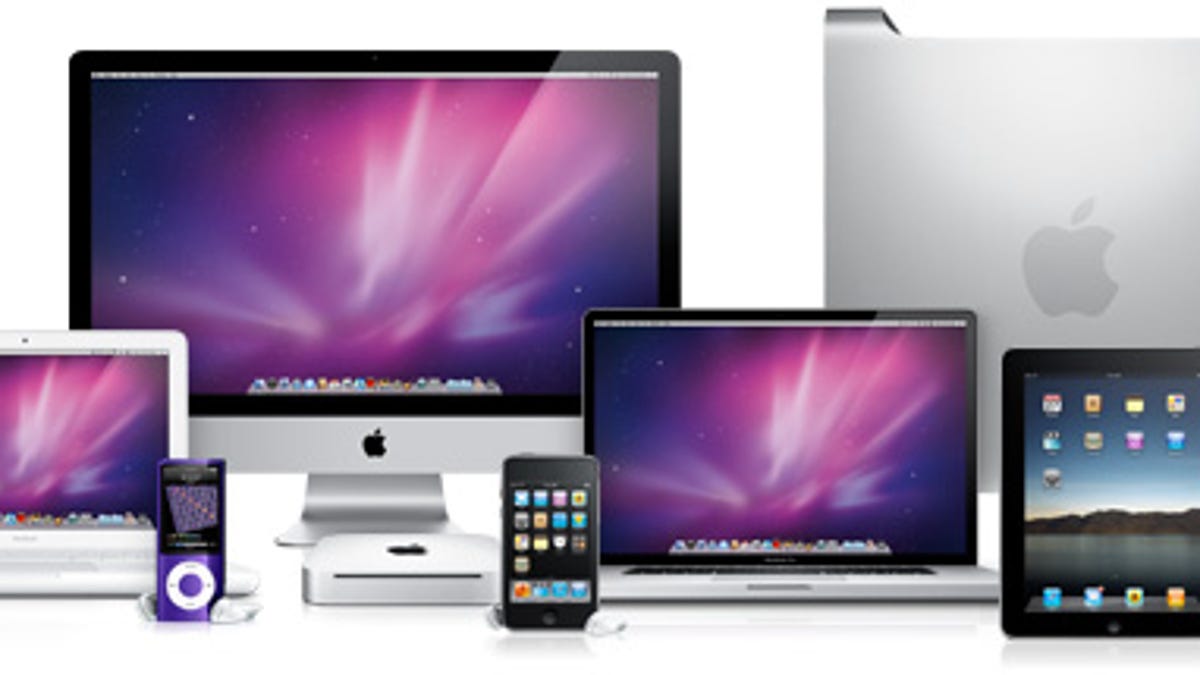Study: Why you should wait to buy Apple gear
A deal-hunting site has put together three years of Apple pricing data to help determine when's the best time to buy a new product. The short version: patience is a virtue.
Common sense dictates that the longer you wait to buy a piece of technology, the cheaper it gets. Though that adage can be difficult to abide by when those products are coming from a company like Apple, which rarely cuts the price of a product until it's been made obsolete by something newer.
Nonetheless, discounts can be had from Apple's authorized resellers, who can throw in a discount or add-on to better compete with the company. Discount tracker Dealnews has put together three years of pricing data to illustrate this, as well as offer suggestions on when's the right time to buy a new Apple product.
The bottom line? Exercise some restraint by waiting a few days post-launch, then buy it from somewhere other than Apple when there's a sale.
Some of Dealnews' suggestions:
Be patient. "Never buy an Apple product on the day of its launch," Dealnews' Louis Ramirez writes. "Our deal archives show that most Apple products receive a discount within eight days of their launch (excluding the iPad and iPhone)."
With the latest MacBook Air, that patience would earn buyers a $30 discount if they bought it from retailer MacConnection the day after the product's release. Waiting a full seven months would bring a $120 discount on the entry-level 11-inch model. A similarly steep $94 discount could be had by waiting eight days after the release of the latest 21.5-inch iMac model, Ramirez notes.
So what about waiting for deals on the iPad and iPhone? Ramirez says it's not worth it, since price cuts are tied to new models.
"The first deal we saw for the original iPad came 11 months after its debut when Beach Camera via eBay Daily Deals offered it for $449. (Beach Camera's deal was actually $8 under Apple's Black Friday discount.)" Ramirez said. By comparison, the iPad 2, which has only recently begun to ship in less than a week from Apple itself, got a $10 discount three months post-release from third-party reseller PowerMax.
Don't buy from Apple. "The best deals we saw came from authorized Apple resellers, specifically Amazon, MacConnection, and MacMall," Ramirez writes. "For the past three years, these vendors have been the first to discount new Apple products."
Don't wait until the holidays. The one time of year Apple has historically put its items on sale has been Black Friday (the day after Thanksgiving in the U.S.), when retailers make deep price cuts to get shoppers in the door. Ramirez says the wait's not worth it if you want to buy something earlier in the year.
"Even with Apple's annual Black Friday sale (which typically takes 5 percent to 10 percent off select purchases), we saw better deals on Apple products throughout the year than we did on Black Friday," Ramirez said.
By the numbers
The big question you may be wondering is why retailers don't offer steeper discounts on Apple gear in the first place. One reason is minimum advertised pricing (or MAP), an agreement made between the product manufacturer and the reseller to set the lowest price that item can be advertised (but not necessarily sold) at.
These agreements exist to keep a balance between retail establishments that sell the same goods.
"As the Internet came along, pricing availability was just unbelievable," said Wes Shepard, the CEO of Channel IQ, in an interview with CNET last month. "As price comparison engines and marketplaces started to standardize and catalog products and make it very easy to compare prices. It was like throwing gas on the fire because now it's all about price and the products are getting commoditized. That's probably the last thing a manufacturer wants to see."
Shepard, whose company tracks market pricing on goods across the Web for its clients--in part to help them make sure MAP agreements are being followed--says manufacturers are more concerned that there's a steady price for their goods.
"When you go to buy an iPad or a Dyson, and you go from store to store to store, and the price never changes, then your next thought is 'well if that's the price, then I'm going to go to the retailer that offers the best experience and the best service,'" Shepard said. "Consumers start to think about where they want to shop, and for all the other reasons than price."
So what about the deal hunters like the ones who would wait three months to save $10 on an iPad?
"With price-sensitive people--if that's all they care about--they'll ultimately find a deal," Shepard said. "But they'll probably expend more effort than the actual savings. But we've seen that MAP correctly managed really does benefit all three people involved in a retail transaction: the consumer, the retailer, and the manufacturer."


